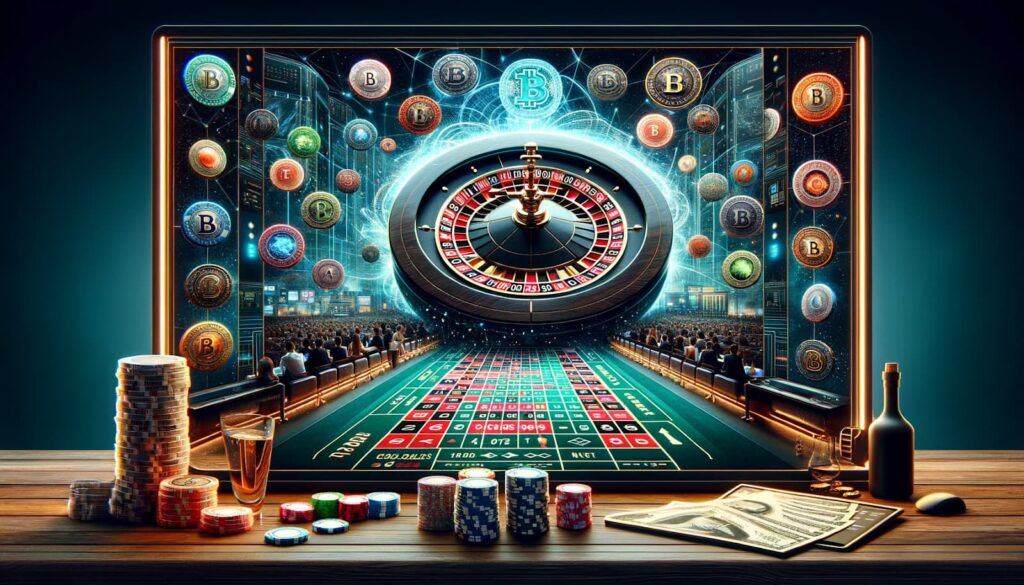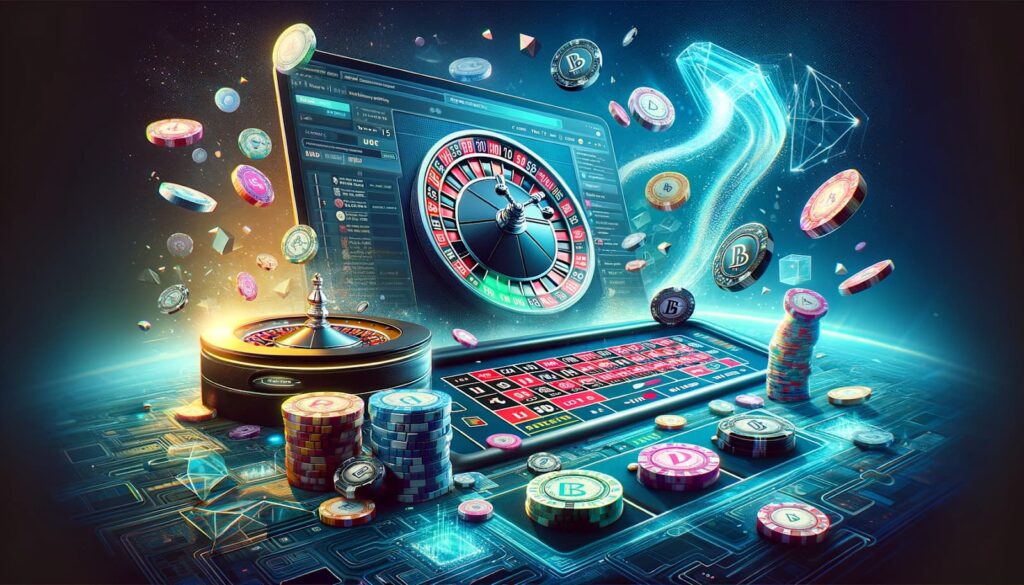A revolutionary development in the ever-evolving realm of online gaming is the conversion of conventional roulette chips into Non-Fungible Tokens (NFTs). This creative method not only modernises the traditional casino experience, but also brings it into line with the digital age’s technical breakthroughs. Online roulette becomes a complex platform that combines the excitement of gaming with the cutting-edge complexities of blockchain technology by transforming chips into distinct digital assets. This guide delves into the mechanics of gamifying online roulette through NFTs, exploring its implications, challenges, and the potential it holds for revolutionizing online gaming, particularly in scenarios where players seek experiences like roulette beyond Gamstop restrictions.
The Evolution of Online Roulette
An important turning point in the history of casino gaming has been reached with the development of online roulette. The game of roulette, which has always been a favourite due to its recognisable wheel and the exciting movement of the ball, originated in the classy and traditional casino halls. Its move to the digital sphere was smooth and extremely effective. Online versions of the game perfectly capture the essence of the original game, including the spinning wheel, the variety of bets, and the suspense of the ball falling on a number. With better visuals, sound effects, and user interfaces, these digital platforms have not only expanded the game’s player base but also improved the whole experience. Its appeal has been further enhanced by the ability to play from anywhere and the availability of live dealer alternatives, which let players enjoy the excitement of real-time roulette from the comfort of their homes.

NFTs and Their Role in Online Gaming
At the vanguard of blockchain technology, Non-Fungible Tokens (NFTs) are transforming the online gaming industry by adding a new level of asset ownership and legitimacy. Unlike standard digital assets, NFTs are one-of-a-kind, irreplicable, and cannot be traded one-to-one, which makes them perfect for representing precious and uncommon goods in the game world. NFTs play a variety of functions in the online gaming industry. First, they might be special in-game products like skins, weapons, or characters. Each of these items has a distinct identity and ownership history that can be verified on the blockchain. Because of its verifiability, online gamers can feel more secure and transparent about the provenance and validity of digital assets — a typical worry in online gaming. NFTs can also be utilised as digital collectibles, giving users the opportunity to purchase an item from the game’s world that they can exchange, sell, or keep on display. By giving the game assets a layer of personal investment and value, the integration of NFTs into gaming platforms like roulette not only improves the player experience but also opens the door for new economic models within the gaming industry, where players can actually own, collect, and profit from their online gaming endeavours.
Turning Chips into NFTs: A New Roulette Experience
To convert roulette chips into NFTs, each chip must be digitally represented as a distinct asset based on blockchain technology. This implies that each chip a player purchases or gains is a unique object that is unmatched by any other. There are various advantages to this integration:
- Provenance and Ownership: Players are the rightful owners of their chips, and they may see in plain sight the origins and methods of each chip’s acquisition.
- Enhanced Security: Because blockchain technology is decentralised, fraud is less likely to occur because it guarantees that the chips are safe and the game is fair.
- Enhanced Interaction: NFT-based chips can be enhanced with unique features that add to their value and appeal, such limited edition designs or exclusive benefits.
- Tradeability: By allowing players to exchange or sell their NFT chips on a number of venues, the game itself gains an extra element of strategy and investment.
Implementing NFTs in Roulette Beyond Gamstop Restrictions
When integrating NFTs into roulette systems, particularly ones that are not restricted by Gamstop, certain considerations need to be carefully taken into account:

- Platform Development: Creating a blockchain-based system that can manage NFT transactions while preserving the essential elements of roulette gameplay.
- Regulatory Compliance: Making sure that, especially in places with laxer laws, the use of NFTs conforms with gambling regulations.
- User Experience: To guarantee a smooth and entertaining gaming experience, the classic roulette components are balanced with the new features brought about by NFTs.
- Marketplace Integration: Establishing a new marketplace or integrating an already-existing one so that users can exchange their NFT chips.
Challenges and Considerations
Although the idea behind NFT roulette chips is intriguing, there are some obstacles to overcome:
- Technical Difficulty: It takes a lot of money and technical expertise to integrate blockchain technology with online gaming platforms.
- Market Volatility: The value of NFTs is subject to extreme fluctuations, which may have an impact on players’ strategy and game experiences.
- Accessibility: It’s critical to make sure that players who are unfamiliar with blockchain or NFTs can still access and enjoy the game.
- Regulatory Obstacles: Getting around the legal system might be difficult, particularly in places with stringent gaming regulations or where NFTs are not yet widely accepted.
The Future of Roulette and NFTs
A revolutionary step forward in digital gaming, the integration of Non-Fungible Tokens (NFTs) with online roulette heralds a new era in our interactions with online casinos. This novel method delivers improved security, transparency, and player engagement by integrating distinctive, blockchain-based assets like roulette chips into the game experience. It offers a more engaging and strategically rich environment, making it more tempting for those experimenting with alternatives like roulette outside of Gamstop constraints. Now that they can buy, sell, or trade these digital items, players can deepen the experience of playing the classic game. We should expect a more extensive and advanced use of NFTs in online gaming as blockchain technology develops and legal environments change. Online roulette will be redefined by this evolution, which will make it more connected and adaptable and satisfy the needs of today’s players who want a safe, real, and entertaining online gaming experience.
Conclusion
To sum up, the incorporation of NFTs into online roulette signifies a noteworthy advancement in the development of virtual gaming. This creative method uses blockchain technology to improve on the classic roulette experience by increasing player engagement, security, and transparency. This concept adds a new dimension of strategy and value to the gaming experience by enabling players to own unique digital assets. It is especially relevant for those looking for options like roulette outside the Gamstop limits. As we go forward, this combination of cutting-edge technology and classic gaming will probably set the standard for online gambling in the future by offering a more immersive, engaging, and safe environment that caters to the tastes of a digitally savvy audience.